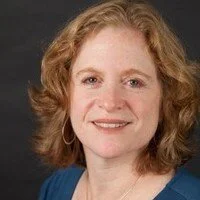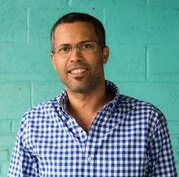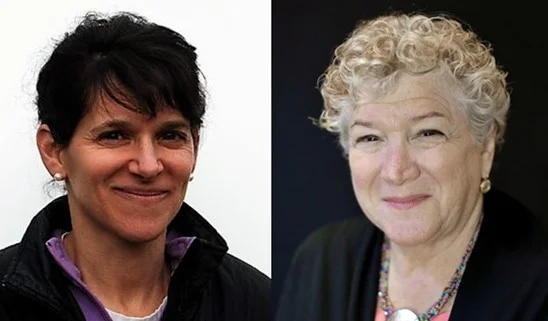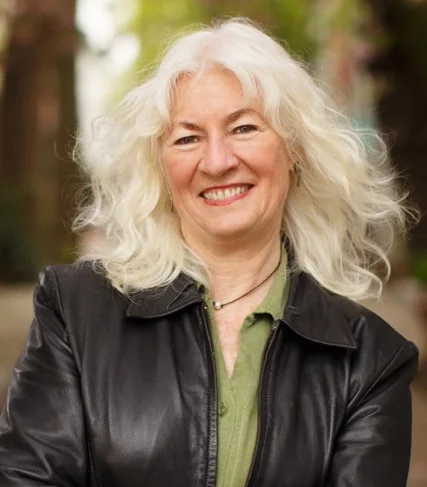It is well-known that 26% of Philadelphians live in poverty - a persistent challenge that perpetuates our status as the United States’ poorest large city. After leading The Enterprise Center for 27 years, my experience has taught me that all of our region’s stakeholders - public and private - need to act strategically to overcome this challenge and change the lives of nearly 400,000 residents that endure poverty’s effects. I’m calling for real investment in a critical priority for 21st-century Greater Philadelphia: minority entrepreneurship.
Read MoreIn this post, I walk through my case for why investing in local businesses is inherently impact investing. After reading this, you will understand why small businesses struggle to access capital even in a strong economy, why decentralized local lenders provide fair capital, and how you and everyone around you can participate in transforming the trillion-dollar small business lending industry currently failing many local small businesses.
Read MoreJust days before Christmas 2019, and we await the gift of regulatory clarity. Word is out that final OZ regulations have made their way to the White House. Can these offer what we need to craft a path forward to use this tax-benefited capital tool to grow businesses.
Read MoreTriple Bottom Brewing is Philly’s fair chance brewery. Our team brings a wide variety of experiences and perspectives to the table. We’ve been deeply intentional about reaching out to communities of people who are traditionally excluded from the mainstream economy in order to build an inclusive business, and have developed critical partnerships with Project HOME, Mural Arts Restorative Justice Program, and the Youth Sentencing & Reentry Project to recruit and support our team members.
Read MoreSocial impact is an entity’s unmonetized external value. It is the uncaptured value of all of its outcomes - absent any moral judgment - on the interacts with via the products and services it delivers.
Read MoreIn pursuit of deeper impacts, social sector investors have begun to explore different permutations of Program Related Investments. Intermediaries play an important role in facilitating PRI loan funds however, this often raises the cost of capital to a price equal to or exceeding market rates. Direct PRI loans could unlock significant savings yielding new programmatic investment, financial stability, and ultimately, deeper impact.
Read MoreThis story begins in 2002 in the western suburbs of Philadelphia. Clemens and a small group of colleagues saw the need to create a conscious and sustainable world through engaged philanthropy and had the vision to align practice with purpose – at the individual level, in the community, and on a global scale.
Read More54.46% in poverty
27.56% unemployed
209 deaths from overdoses in 2017
These are the sobering statistics of Harrowgate, a Kensington neighborhood north of Lehigh Avenue, that is only 15 minutes north of Center City on the Market-Frankford subway line, and three subway stops away from Fishtown – “the hottest neighborhood” in the United States according to Forbes magazine.
Read MoreWhat comes after innovation? As CEO of Benjamin Franklin Technology Partners, an organization charged with catalyzing the Philadelphia region's entrepreneurial and innovation economy, I've struggled with this question. It was 2001 when I began to follow the emerging national narrative around impact, marked by Harvard Business Review's January 2001 issue: Ideas with Impact - an issue I still have to this day. In it, an article by Charles Handy entitled "Tocqueville Revisited: The Meaning of American Prosperity." revisits Tocqueville's journey, but focuses on capitalism instead of democracy. Handy writes of the need for "new capitalism" and discusses American Nobel Prize Winner Robert Fogel's optimism that "a new sense of purpose…will be at the heart of the next stage of capitalism." The idea resonated with me then and stayed with me over time.
Read MoreAlthough community development finance has primarily built its foundation around real estate investing, we have learned that in a city like Philadelphia, neighborhood revitalization does not always empower local residents to move up the economic ladder but can often lead to displacement through gentrification. An impact economy requires both growth AND mobility, and thus, our strategies must include a focus on both improving places AND empowering people. To this goal, an effective impact capital strategy is about more than just building and investing financial and physical capital. We should also consider how we build and invest in human and social capital in our city.
Read MoreTo date, many innovative education technology products and services have not been adopted by schools or have failed to achieve scale. One reason for this lack of adoption and implementation is the disconnect that often exists between educators and entrepreneurs. Practitioners often receive inadequate information about new tools and their capacity to enhance instruction, which further impedes implementation. In addition, the limited amount of time and resources that most practitioners encounter on a daily basis, including insufficient professional development on how to use new technologies, further impedes adoption rates.
Read MoreMany who hear “Habitat for Humanity” have some familiarity with Habitat for Humanity's affordable housing work, the phrase “a hand up, not a handout,” and President Jimmy Carter and his wife, Rosalynn Carter's the tireless commitment to the organization over years. However, few are aware of our furniture and home goods social enterprise, ReStore, that infuses dollars into our Homeownership and Home Repair Programs - two programs that provide affordable payment options, sweat equity, and volunteer labor opportunities for low-income populations that have housing needs in Philadelphia.
Read MoreAt the Wharton Social Impact Initiative, we focus on how businesses and finance can be leveraged to drive inclusive economic development. Over the last decade, we have noticed a dramatic increase in the number of investors seeking to achieve financial returns as well as measurable social or environmental impact across their investable assets. This approach to investment – generally known as “impact investing” – takes many forms across asset classes, impact sectors, industries, and geographies. And, the growth in impact investing is leading to a range of partnerships, approaches, and funding strategies.
Read MoreOver the past several decades, investors, economists, and business owners alike have acknowledged the need to move from shareholder capitalism to stakeholder capitalism. Research shows that Millennials seek meaningful work and investments that make money and make a difference. And since Millennials represent 50% of the global workforce and will inherit $40 trillion in the coming decades, they will shape labor and capital markets like no other generation. The existence of this trend raises important questions that B Lab's Liz Fernandes explores in this Perspectives piece.
Read MoreThe Circle of Aunts and Uncles is a group of 35 members that seeks to build local self-reliance by supporting, mentoring, and providing low interest loans and social capital to aspiring entrepreneurs in Philadelphia. The group has loaned out more than $100,000 since 2015 with priority given to entrepreneurs who demonstrate financial need, are from a historically marginalized population, aspire to implement eco-friendly business practices, and plan to maintain local independent ownership.
Read MoreThere’s a collective societal consciousness that thinks of traditional stock and bond markets as prudent and safe while viewing direct investments into businesses and non-profits as risky. The Untours Foundation seeks investments with local and/or societal benefits and makes the case that perhaps the level of risk isn’t so different after all.
Read MoreWhy does ImpactPHL chair John Moore feel so strongly about optimizing investments beyond financial metrics, and Philadelphia’s role as a global hub for such innovation? In volume one, he explains the perspective of ImpactPHL Perspectives.
Read More
















